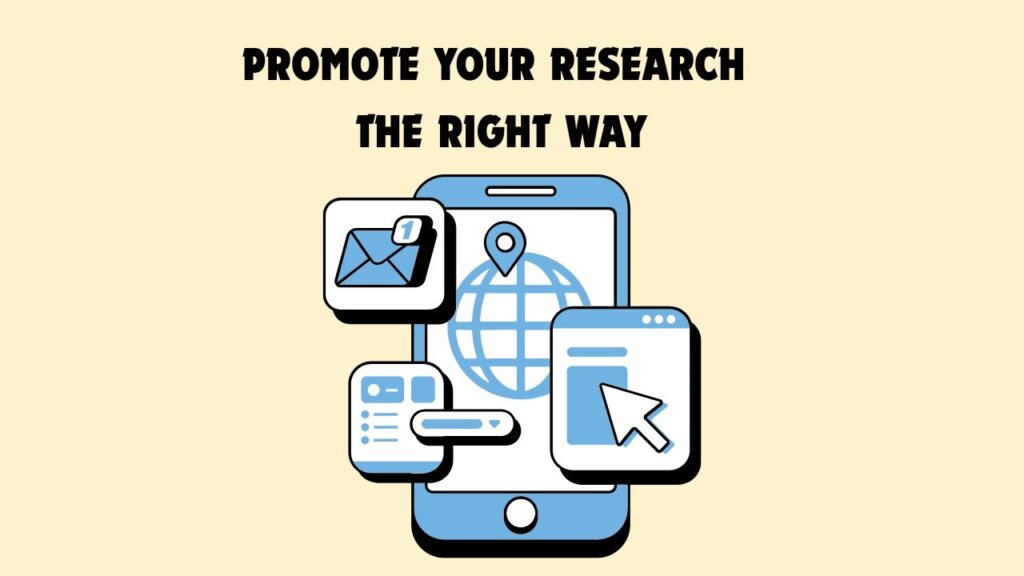Maximizing the impact of your research: How researchers can engage with policymakers to shape policy decisions and change lives

Many people get into research because they want to push the boundaries of human knowledge and change the world, and countless researchers publish brand new findings each year in journals and preprint servers. However, few researchers see the impact of their studies, even when their findings may be vital to guide policy decisions that shape our lives.
Adopting a proactive approach to engaging policymakers can greatly increase the impact of your research and provide you with numerous other career benefits. Here, I summarize both why you should try to engage with policymakers and how you can make a real impact.
The importance of researchers in policy decisions
Researchers provide evidence-based insights that can greatly affect opinions and inform policy decisions. Meanwhile, policymakers must handle complex issues that require in-depth analysis and understanding. In short, researchers offer the expertise to help policymakers navigate these issues.
Besides providing evidence-based studies, researchers can also bring previously unnoticed issues and trends to light1. Furthermore, researchers can evaluate policy outcomes to determine their effectiveness2 and provide updated recommendations to policymakers.
Finally, researchers are effective advocates. As their recommendations are often valued by politicians and non-governmental organizations, researchers have a unique capacity to influence the world for the better.
Tips to get noticed
Getting noticed can be challenging, but it remains essential for maximizing the impact your work has on society. Here, I provide some tips that can improve your visibility.
Put policy relevance first
Make sure your research addresses issues that policymakers are grappling with or that are likely to become policy issues. Try to frame your research questions and findings in terms of the policy implications3; as a scientific editor, I often remind authors of the importance of succinctly summarizing the policy implications of their research.
Keep language clear and concise
Policymakers are busy people who often don’t have the luxury of studying a topic extensively. Furthermore, many policymakers are laypeople to their policy interests; for example, many politicians make decisions on energy policy, but few of them have any formal training in engineering, earth science, or renewable power generation. Using plain, non-specialist language can bridge the gap and improve their understanding.
Engage with policymakers directly
Contact details are available for all elected officials, so you should not hesitate to contact policymakers working on issues relevant to your research. Attending policy conferences or meetings and participating in policy discussions also provide great opportunities to build relationships with policymakers.
Disseminate your research across multiple channels
Academic journals are still the main venue for research publication, but don’t rely solely on them to report your findings. Consider writing op-eds or policy briefs4 that summarize your research in accessibly. Social media sites, including mass-appeal platforms such as Twitter and specialist portals like ResearchGate5, also provide a great way of re-sharing your work to reach wider audiences.
Collaborate with other researchers and organizations
Collaborations not only help amplify your message and lend credibility to your work, they also provide vital opportunities to coordinate and craft a strong, cohesive message. Consider reaching out to think tanks, advocacy groups, or other organizations that share your policy agenda.
Time your actions
Timing the release of your research to coincide6 with important policy discussions or events is difficult. However, if your research has direct policy implications, using the previously mentioned alternative channels to amplify your message at key times can attract greater attention. For example, a specialist on environmental pollutants could use a public discussion on regulations for chemical waste disposal as an opportunity to pen an op-ed article to better guide discourse.
Stay persistent
Getting your research noticed takes time and effort. Be persistent in your efforts to communicate your work and don’t give up if you don’t get a response right away. Policymaking is often a slow process, and it may take some time for your work to have an impact.
Researchers who made a big impact on policy
Marine biologist Rachel Carson made an undeniably huge impact on policymakers and greatly affected our world. Following a productive career in marine biology, her book The Sea Around Us7 became a landmark in popular science, propelling her to worldwide fame and winning numerous awards. This success was followed by 1962’s engaging and poetic Silent Spring8, which documents the negative impacts of pesticide use on nature. In particular, she focused on the deleterious effects of DDT, which at the time was extensively used in the United States. Despite heavy opposition from industry, public opinion turned against the use of DDT, resulting in a ban that remains in force to this day9. Silent Spring remains a foundational text in the modern environmental movement.
Anthony Fauci is another household name. Early in his career as an immunologist at the National Institute of Allergy and Infectious Diseases, he engaged with policymakers extensively and was made the director in 1984. Since then, he has been a figurehead during many disease outbreaks, such as swine flu and ebolavirus. He was perhaps the most discussed researcher at the peak times of both the HIV and COVID-19 pandemics. While he has received criticism, he remains a trusted figure who greatly shaped policies10 over five decades of public service.
Abhijit Banerjee, Esther Duflo-Banerjee, and Michael Kremer jointly received the Nobel Memorial Prize in Economic Sciences in 2019 for their randomized controlled trial-focused approach to alleviating poverty. Besides using a data-first methodology to solve social issues, they have used various media to raise awareness of their research and provide engaging discussions, such as publishing the book Poor Economics and giving TED Talks11 that have been viewed millions of times.
Finally, Robert Winston is Britain’s most famous fertility specialist. He has worked as a research fellow and physician, pioneering new surgical techniques for fertility treatment. He has also presented many informative BBC documentaries such as Child of Our Time12, which have focused on human reproduction, child development, and the bioethics of fertility treatments. He is widely admired in the UK and is a life peer in the House of Lords, meaning that his contributions to science have made him a policymaker in his own right.
Conclusion
Engaging policymakers can help researchers guide policy decisions, increase the impact and visibility of their work, and secure funding for future research. As such, developing the skills to effectively communicate with the policy community is worthwhile for any researcher who wants to maximize their potential.
References
1. Section 10. Conducting Research to Influence Policy. https://ctb.ku.edu/en/table-of-contents/advocacy/advocacy-research/influence-policy/main
2. Holford, A. Four key methods for evaluating policy impact. 30 September 2021. https://www.iser.essex.ac.uk/blog/2021/09/30/four-key-methods-for-evaluating-policy-impact
3. Newson, R., Rychetnik, L., King, L. et al. The how and why of producing policy relevant research: perspectives of Australian childhood obesity prevention researchers and policy makers. Health Res Policy Sys 19, 33 (2021). https://doi.org/10.1186/s12961-021-00687-0
4. How to write a policy brief. IDRC. https://www.idrc.ca/en/funding/resources-idrc-grantees/how-write-policy-brief
5. https://www.researchgate.net/
6. Smith, K., Fernie, S., & Pilcher, N. (2021). Aligning the times: Exploring the convergence of researchers, policy makers and research evidence in higher education policy making. Research in Education, 110(1), 38–57. https://doi.org/10.1177/0034523720920677
7. Carson, R. The Sea Around Us. Oxford University Press (1991). https://www.rachelcarson.org/SeaAroundUs.aspx
8. Carson, R. Silent Spring. Houghton Mifflin Company; Anniversary edition (2002). https://www.rachelcarson.org/SilentSpring.aspx
9. Dichlorodiphenyltrichloroethane (DDT) Factsheet. Centers for Disease Control and Prevention. https://www.cdc.gov/biomonitoring/DDT_FactSheet.html
10. Constantino, AK. Dr. Fauci’s influence reaches beyond Covid, across five decades of research: ‘He always spoke to science, committed to what was right’ (2022). https://www.cnbc.com/2022/08/23/dr-anthony-fauci-legacy-from-lab-work-hiv-aids-to-covid-pandemic.html
11. Duflo, E. Social experiments to fight poverty. TED2010. https://www.ted.com/talks/esther_duflo_social_experiments_to_fight_poverty
12. Child of Our Time. BBC. https://www.bbc.co.uk/programmes/b0072bk8





